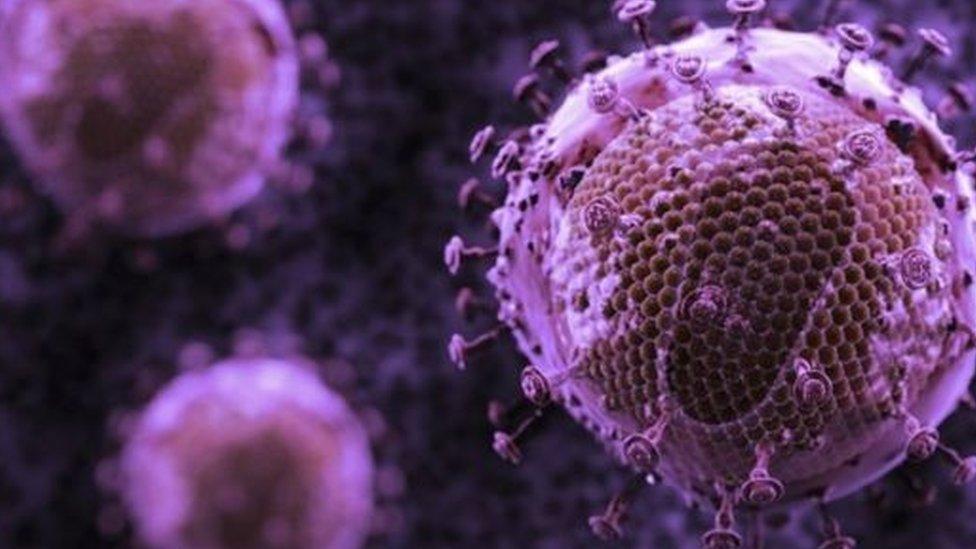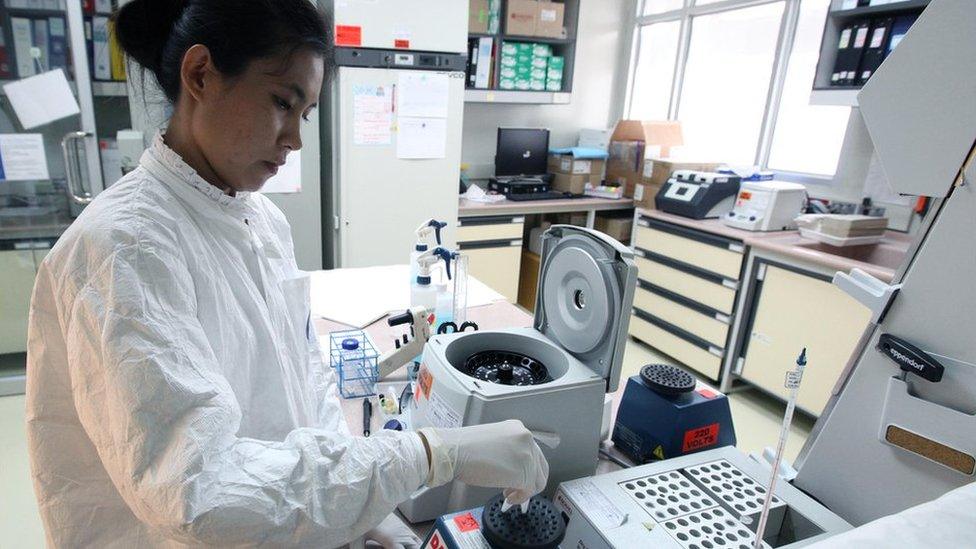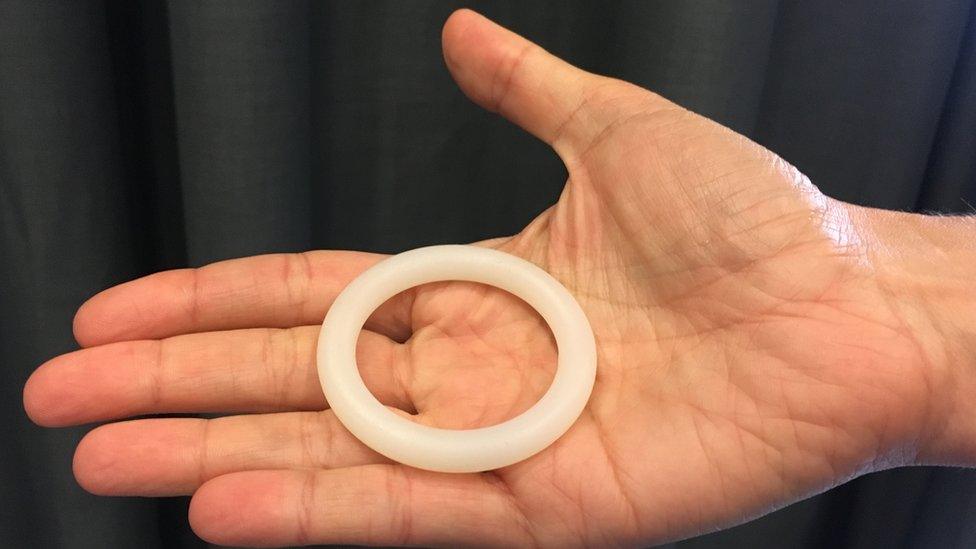Antibody helps keep man's HIV at bay for 10 months
- Published

An experimental therapy has held back one man's HIV infection for 10 months, doctors have reported.
He was one of 18 people in a small trial testing injections of "broadly neutralising antibodies" - the natural weapons of the immune system.
They delayed the resurgence of the virus in other participants by around two weeks.
The findings are being presented at the ninth International Aids Society Conference on HIV Science in Paris.
The human body is inefficient at making antibodies that neutralise HIV.
Only one in five people infected with the virus develops them - and even then it takes many years and high levels of uncontrolled virus.
But more than 200 broadly neutralising antibodies have been documented, which doctors hope could be useful for both preventing and treating HIV.
Antibody infusion
The trial in Thailand, led by the US Military HIV Research Program (MHRP), took people who were controlling their infection with their standard HIV medication.
Some were given no treatment and others had an infusion of the antibody - codenamed VRC01 - into their bloodstream.
Inevitably the virus came back in those getting no treatment. It took an average (median) of 14 days, at which point they were put back on antiretroviral therapy.
In those receiving the antibody it took 26 days.

Dr Jintanat Ananworanich, one of the MHRP scientists, said there was also the exceptional case.
She told the BBC News website: "[The patient] has been off treatment for around 10 months and has so far controlled the virus to very low levels."
He had the antibody infusion every three weeks for six months.
The field is still at an incredibly early stage, but the results point to the potential of antibody-based therapies.
Dr Ananworanich added: "It suggests there's some impact from the antibody, but how the antibody actually impacts the virus and the immune system - that's an on-going investigation.
"I do think antibody therapy has potential because the antibody, in the future, could perhaps be given just two or three times a year."
Immune booster
Animal research has suggested antibodies could have a greater impact than conventional therapies because as well as attacking the virus they also train the immune system.
When the antibody binds to HIV in monkey studies, they form an "immune complex" which other parts of the immune system might be able to recognise.
Dr Ananworanich told the BBC: "That perhaps stimulates the other arms of the immune system, like the T-cells, to better react to HIV - and in that monkey study the monkeys went into remission."
The next stage of the research is to go through all the blood samples collected during the trial to identify how the therapy affected both the immune system and the virus.
HIV is such a difficult virus to treat - it mutates constantly - that any future therapy would probably require multiple broadly neutralising antibodies.
However, antibodies are not a simple chemical. They are an intricate piece of immune biology, and that makes them expensive to manufacture.
Dr Anthony Fauci, the director of the US National Institute of Allergy and Infectious Diseases, said: "Antibodies are generally more expensive because they're biologics and they're more complicated to make than small molecules.
"But if we get an antibody that works I can guarantee you we can probably rev it up from a production standpoint to bring the costs down dramatically [so] that it would be available."
Follow James on Twitter, external
- Published25 July 2017

- Published25 July 2017
